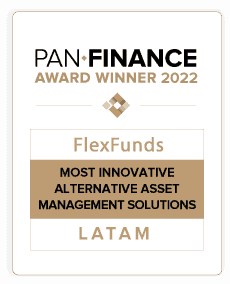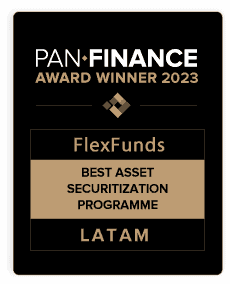Alternative investment funds will help reduce the risk of the markets
When putting together a financial strategy that aims at protecting and/or increasing wealth over time, it is essential to pay attention to diversification, which can be achieved through some investment alternatives such as alternative investment funds.
Why asset diversification is important?
Diversification is a technique that consists of distributing investments among different assets to help minimize risk, selecting different types of investment vehicles, industries, sectors, geographical areas, etc.
Diversifying wealth is extremely important because it limits exposure to significant market losses in exchange for sacrificing a greater potential gain.
However, according to BlackRock, an asset manager with around US$10 trillion under management, “at times when the market is doing well and an investor is not getting the return they would like, it is important to remember that the purpose of diversification is not to maximize returns, but to minimize against downturns.”
Diversification makes it possible to reduce, in different measures, two types of risks: systematic and non-systematic.
Systematic risk
Systematic or market risks are those linked to the entire economic and financial environment surrounding the investment.
It is said that they are not diversifiable because they affect all assets almost equally, such as a war, a global crisis, a catastrophe, or a pandemic like the one that started in 2020.
Unsystematic risk
On the other hand, the non-systematic risk or own risk corresponds specifically to an investment alternative.
For example, in the case of a Coca-Cola share, this risk would be linked to the production of its beverages. If the company does poorly, only its shares will be affected, not the entire market.
“Systematic risk is the risk associated with the overall market, while unsystematic risk refers to the hazards posed by a specific security, asset class or industry segment,” summarizes Forbes business magazine.
Alternative investment funds
Through an asset diversification strategy, many risks, mainly non-systematic, can be reduced, and one way to do it is via alternative investment funds.
According to the United States Securities and Exchange Commission (SEC), “many alt funds try to minimize swings in the value of their investments and reduce risks by spreading their investments among different asset types and/or using complex trading strategies.”
These alternatively managed funds execute numerous strategies that help diversify into both unconventional assets and conventional assets.
Unconventional assets
Unconventional assets are generally not traded in the capital markets, such as real estate or private companies. Their particularity is that they tend to have very low liquidity and a high initial entry cost.
Alternative investment funds usually buy these assets and offer them to final investors in a more practical and manageable way.
Conventional assets
On the other hand, alternative management funds are used to diversify assets based on conventional assets such as stocks and bonds.
However, they use more sophisticated tools such as financial derivatives to execute volatility strategies capable of generating a profit regardless of whether the primary market trend is up or down, for example.
In any case, although alternative investment funds help to improve the diversification of a portfolio and all assets in general, they usually entail higher operational expenses than traditional funds.
It is always recommended that individuals or companies that wish to invest and protect their money contact a financial adviser who can guide them on how and in what to invest appropriately according to the preset objectives, risk profile, and needs.
Sources:
- https://www.blackrock.com/americas-offshore/en/education/portfolio-construction/diversifying-investments
- https://www.forbes.com/sites/forbesfinancecouncil/2021/09/10/money-moves-diversifying-your-portfolio/?sh=6194491f5053
- https://www.investor.gov/introduction-investing/investing-basics/investment-products/mutual-funds-and-exchange-traded-funds







